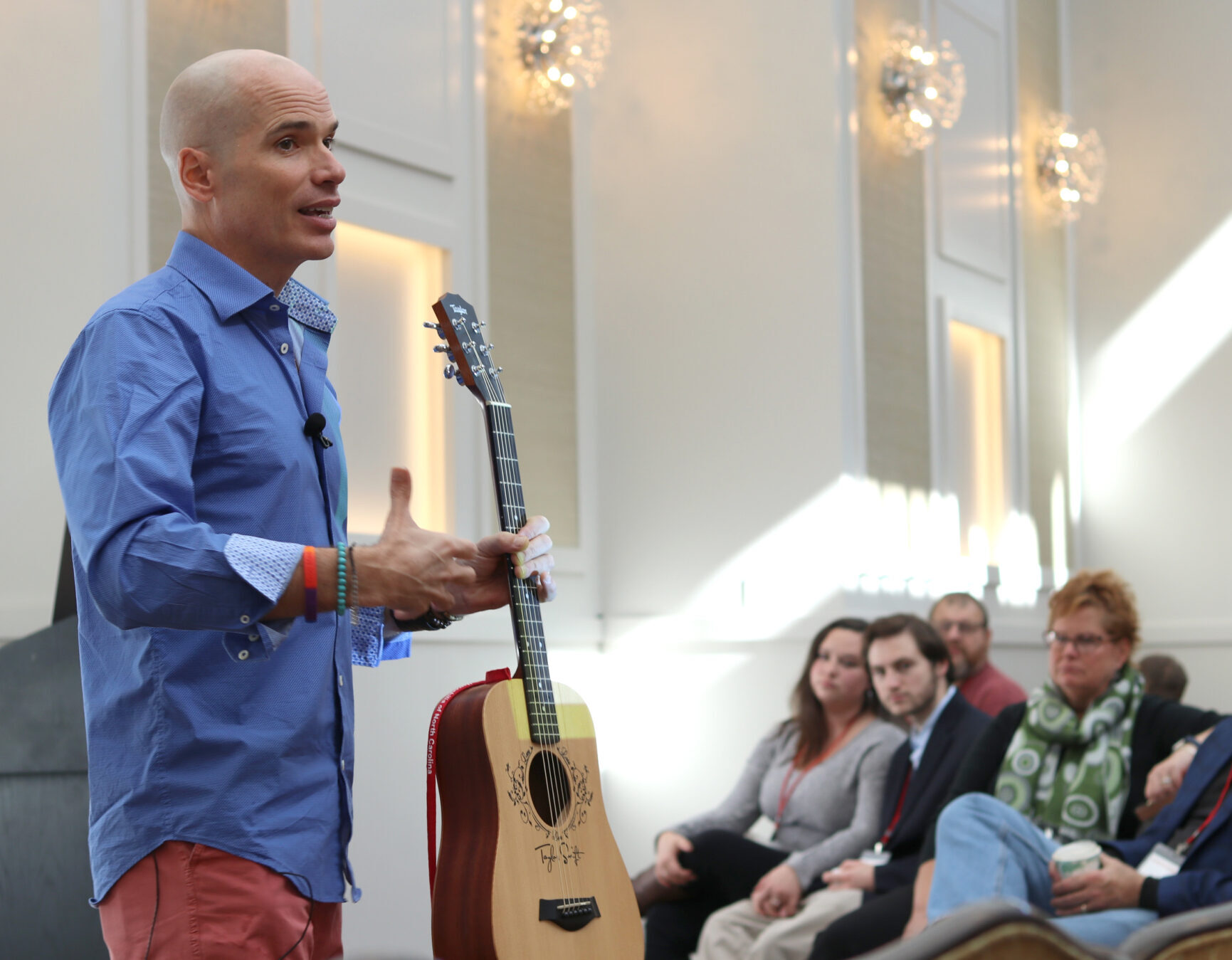Music in Recovery: Safely Escaping Stress

How to Chill the F*ck Out
The clients at the treatment center walk into my group room. Some skulk, some bounce, but they all laugh a little when they look up and see the following written on the whiteboard: How to chill the f*ck out.
I tell them THIS is the goal of the day. Immediately I get their buy-in. I ask them, “Was anyone here ever taught how to chill the ___ out in school?” Silence.
It’s amazing that one of the most important tools for our wellbeing – self-regulation – is NOT actually taught. We simply expect people to know how to instinctively do it, yet we live in a culture that uses chemicals to upregulate or downregulate our brains and bodies on a daily basis.
If we only realized all it takes is rhythm and breath.
For the past 11 years, I’ve treated thousands of clients with music as a board-certified music therapist. What I’ve found is that there are five ways music helps a person in recovery that go way beyond simply elevating our mood. Over the course of five issues, I am breaking each one down for you so you can see how powerful music is as a tool of recovery.
Our bodies are rhythm machines. Think of alllll the different systems running all the different organs in your body right now. Do you have to concentrate on making any of it work? Nope. Why? What is the unseen organizing principle keeping it all working ‘in concert’ with itself?
Rhythm
Your body runs on rhythm. Circulatory, respiratory, ambulatory, circadian, reproductive, digestive systems all run on rhythm. In addition, your nervous system can be hijacked by external rhythm; meaning it will automatically sync up with rhythms in close proximity. In addition to that, your mind and body are two sides of the same coin, meaning they influence each other.
You can harness the rhythm of music to help slow down or speed up your own internal rhythms. There are a couple of names this principle goes by in science but one of them is the Law of rhythmic entrainment, where your body automatically is susceptible to external rhythm. We can use music to either slow down our thoughts, which will slow down our body, or we can use music to slow down our body, which will slow down our thoughts.
Beware of Stress
Stress is the number one danger to someone in recovery because stress triggers cravings as the brain’s way of attempting to self soothe. It doesn’t know any better. We have to be alert to stress and already be prepared to reach for healthy safe options like music in those moments.
Next time you need to chill out, start by reaching for music that you enjoy. But beware, there are some perils to music listening that I covered in my last blog post.
The good news is that there are a lot of ways to deal with stress so that you can strengthen your recovery. That’s why I’ve gathered 28 experts in various fields for the Stress Elimination Summit: Recovery Edition. The fun starts on January 25th and it’s TOTALLY FREE! If you’d like to reduce your stress, strengthen your recovery, and reduce the risk of relapse, join me and these 28 experts by visiting www.stresseliminationsummit.com.

